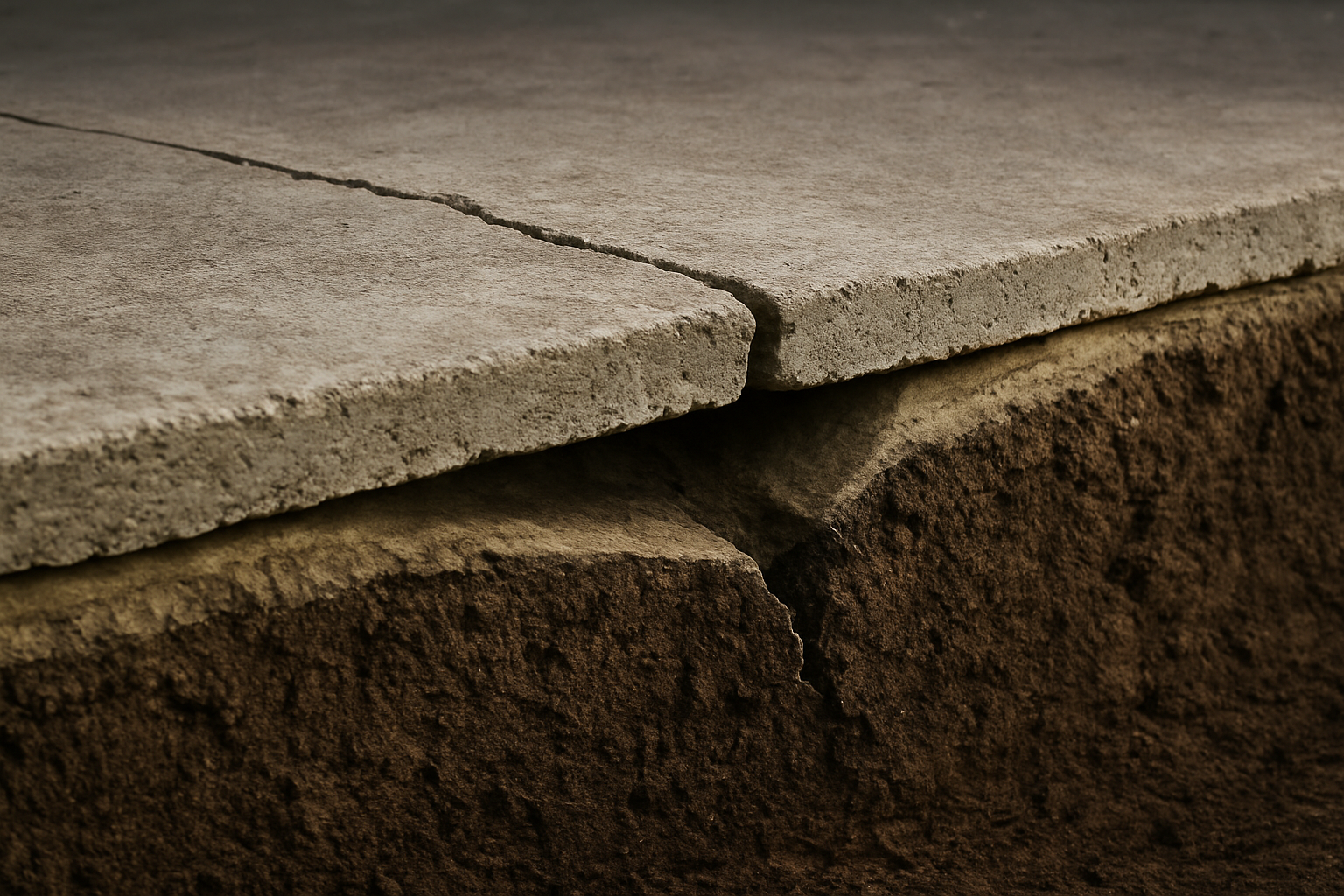Understanding the unique soil and weather conditions in Illinois that cause concrete settling and what you can do about it.
Explore the different factors that cause concrete to sink and settle in Illinois.

Concrete cracking and settling caused by soil erosion and instability
Illinois sits on some of the most expansive clay soils in the Midwest. These soils were formed by ancient glacial activity and contain high levels of montmorillonite clay, which can expand up to 10 times its dry volume when wet.
Illinois experiences extreme weather variations that accelerate concrete settling:
Temperatures below freezing cause soil to contract and water to freeze, creating pressure and voids.
Rapid snowmelt and heavy rains saturate clay soils, causing significant expansion.
Hot, dry conditions cause clay to shrink dramatically, creating the largest voids.
Polyurethane concrete lifting addresses the root causes of settling by filling voids, stabilizing soil, and providing long-lasting support that won't wash away or compress like traditional materials.
Expands to fill all voids and gaps under concrete slabs
Won't wash away or deteriorate from water infiltration
Provides durable support that won't compress over time
Don't let Illinois soil conditions damage your concrete. Contact Pete's Poly Concrete Lifting for a long-lasting solution.